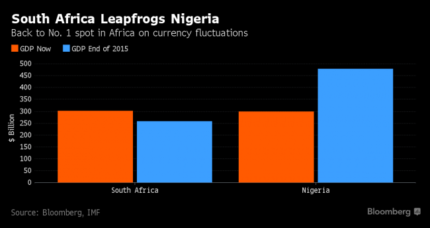By: Nadia Takyiwaa-Mensah
Merely eight years ago, economists and investors had crowned Africa as the “final frontier”, noting the continent had potential which involved high risk yet high returns. Africa had become a global conversation while China was aggressively growing its economy and the U.S. and Europe were slumming in the recession.
Between 2001 – 2010, six out of the ten fastest-growing economies (measured by GDP) in the world were located in Africa with a projection that by 2015, seven out of the top ten countries would be from the region:
2001 – 2010 2011 – 2015
Position 1 Angola 11.1% Position 3 Ethiopia 8.1%
Position 4 Nigeria 8.9% Position 4 Mozambique 7.7%
Position 5 Ethiopia 8.4% Position 5 Tanzania 7.2%
Position 7 Chad 7.9% Position 7 Congo 7.0%
Position 8 Mozambique 7.9% Position 8 Ghana 7.0%
Position 10 Rwanda 7.6% Position 9 Zambia 6.9%
Position 10 Nigeria 6.8%
(Source: The Economist)
In this period, Africa also witnessed large numbers of the diasporan community returning “back home” to start a new life, take advantage of the opportunities and reconnect with Mama Africa.
Africa became the place to be, with the emergence of a middle class, shopping malls springing up all over the continent, per capita income on the rise, mid- to high-end luxury property developments being acquired, intra-Africa regional developments, strengthening currencies against the dollar plus African governments showing promise to its people and the rest of the world.
Today, the story is gravely different with the exception of two nations.
In 2014, Bloomberg Business forecasted the 20 fastest growing economies in 2015; of which, only 2 African countries were featured:
Position 3 Kenya 6%
Position 6 Nigeria 4.8%
Kenya’s economy has been steadily growing over the past 5 years, plus they have experienced single digit inflation, industry sector growth and a steady currency.
In 2014, Nigeria became the largest economy in Africa after rebasing its GDP data, which grew their economy by 89%. Nigeria has witnessed a steady growth with the non-oil sector being her main driver.
One may ask, “What has happened to the great African promise?” Countries such as Ghana have presented a somewhat very sad case for many.
In 2011, Ghana was among the world’s top six fastest growing economies where GDP growth was recorded at 14.4%. The future was looking bright for Ghana as new oil revenue was forecasted, the cedi was performing at GHC1.5 against the dollar, foreign direct investment was high, sovereign bonds which were issued were oversubscribed, and inflation was operating in single digits as well as low interest rate.
Ghana became a success story in the course of 10 years. Many from afar came to get a piece of what was good in Ghana until Ghana’s forecasted fate met its resolve. In the last four years, the country suffered:
- Bad fiscal management
- Rising inflation and interest rates
- Rapid currency depreciation (cedi is now GHC4.5 to $1)
- Severe energy crisis (also known as dumsor, where even in the thriving city of Accra, residents go without electricity for 24 hours to days)
- A return back to IMF for a loan of nearly $1 billion, after most of Ghana’s debt was cleared by a debt relief in 2005
- An IMF prediction that Ghana’s total debt could hit 70% of its GDP, classing Ghana as highly indebted
Many diasporans have returned back to their country of residence after not experiencing the successes that Ghana was said to offer. Friends have said, “This is not the Ghana, that was sold to me 6 years ago.” Although Ghana has been fortunate not to be hit by Ebola, civil wars, terrorism and other known challenges across the continent, it seems the country does not have the best human resources to manage all that the nation has to offer. Ghana is now on its knees, with prospects of the country looking to get better in 2016 as we enter into the election year.
But for many, the losses and the set backs experienced by the nation thus far make 2016 look a very long way away.
So, does Africa still look attractive 6 years on? Apparently, yes. Despite major set backs, investors from all over the world are still piling into African countries with confidence in further market improvements. Angel investors are seeking opportunities within SME’s and local entrepreneurs and the ever-growing middle class still have a hunger for things that they currently do not have access to.
Diasporans are quickly learning to bite the bullet and ride the wave. Africa isn’t for everybody, but for those who can, the rewards are set to be great!



